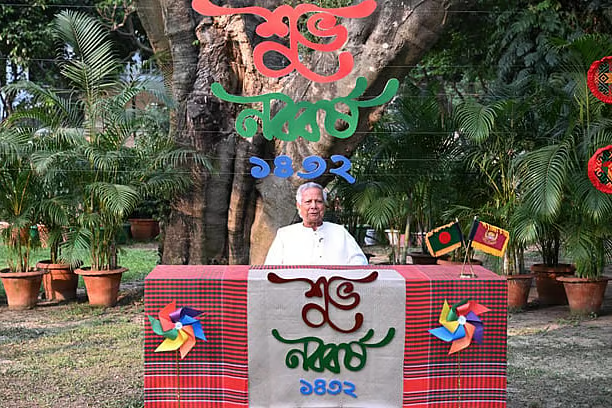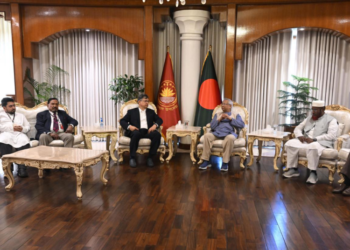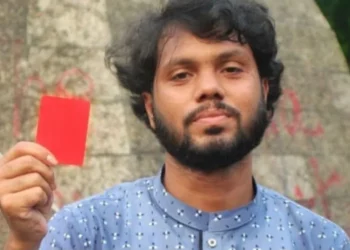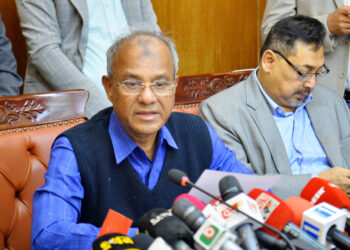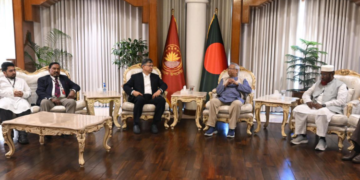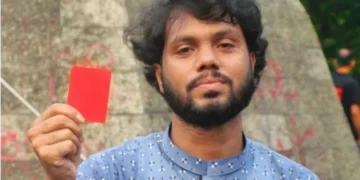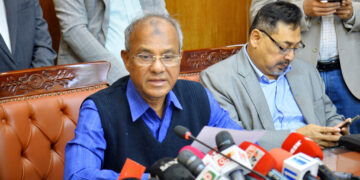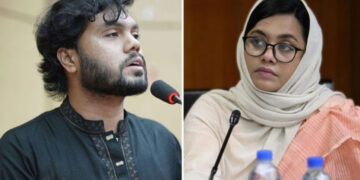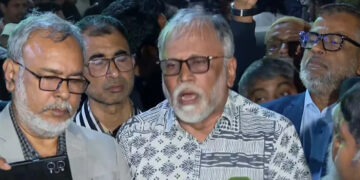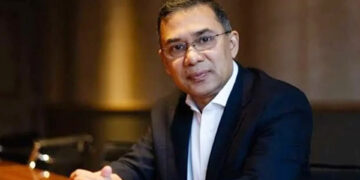Professor Muhammad Yunus, Chief Adviser to the Interim Government and Nobel Peace Prize winner, sent a heartfelt message to the Bangladeshi people on the occasion of Bengali New Year 1432. In his speech, he discussed hope, unity, and the dream of building a better country free of unfairness.
A New Beginning for Bangladesh
Professor Yunus stated that the 2024 mass uprising has provided the Bangladeshi people with a fresh opportunity. It has paved the way for the establishment of a country in which everyone is treated equally and fairly. He asked everyone not to miss this important chance.
“Let this New Year be our promise,” he said, “to build a new Bangladesh where no one is left behind.”
He believes that this Bengali New Year is very special, because it is the first New Year of a new Bangladesh. It is a moment to leave behind all the sadness, pain, and problems of the past, and to start a new journey with fresh energy and strong hope.
Read More: Grameenphone: A Vision Beyond Connectivity
Pohela Boishakh: A Day of Togetherness
Professor Yunus described Pohela Boishakh (Bengali New Year’s Day) as a day of unity and harmony. It is a time when people forget their differences and come together to celebrate life.
“It is a day to welcome everyone with an open heart,” he said. “Let us move forward together with courage and kindness.”
He asked the people of Bangladesh to start the year with positive thinking, new dreams, and a strong desire to improve the country for everyone.
Celebrating our culture and traditions
Professor Yunus’ lecture reminded everyone of Bangladesh’s rich culture and tradition. He stated that we should all be proud of our traditions and take an active role in preserving and promoting them.
“Let our culture not stay hidden,” he said. “Let us proudly share it with the world.”
He mentioned that festivals like Pohela Boishakh are a great chance to present our long history and colorful culture to the new generation and to people around the world.
The History of the Bengali Calendar
Professor Yunus also spoke about the history of the Bengali calendar. He said that it started as a “Fosholi Shon” (Crop Year) many years ago. It was created to help farmers plan their agricultural work better.
Even today, many farmers in Bangladesh still follow the Bengali calendar to plant seeds and harvest crops. It is not just a calendar, he said—it is a part of our everyday life.
Traditional Events and Local Crafts
He talked about the popular tradition of “Haal Khata”, where shopkeepers open new account books at the beginning of the year. Even in this modern time, this tradition is still followed in markets, towns, and cities across the country.
He also praised the creativity of local craftsmen and entrepreneurs, who make beautiful items like:
- Shitalpati (cool mats)
- Clay pots and toys
- Bamboo hand fans
- Colorful decorations
These products are displayed and sold at Boishakhi fairs all over Bangladesh. Through these, local artists show their creativity and keep traditional crafts alive.
Read More: Massive Protest in Dhaka Condemns Israeli Actions in Gaza
Festivals Across All Communities
Professor Yunus said that the indigenous communities in the hills and plains also celebrated Pohela Boishakh and the last day of Chaitra (the previous month) in a big and festive way this year. This shows the unity in diversity that makes Bangladesh unique.
Hope and Good Wishes for Everyone
He ended his message by wishing happiness and peace for all.
“Let the New Year 1432 bring good beginnings for everyone,” he said.
“Let it open the door to joy and new possibilities for all of us.”
Professor Yunus also wished success for all the New Year events and celebrations and encouraged everyone to keep working together with love and responsibility.
Source: Prothom Alo
Share via:

